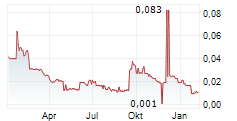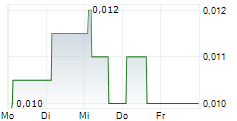
Preventive Cardiology Congress Athens 2024
OXFORD, ENGLAND / ACCESSWIRE / May 1, 2024 / GENinCode Plc, the polygenics company focused on the prevention of cardiovascular disease and ovarian cancer, gave details of a presentation by Kaiser Permanente at the European Society of Cardiology (ESC) Preventive Cardiology congress in Athens, Greece, on the 'Joint consideration of low-density lipoprotein cholesterol ("LDL-C") and polygenic risk for incident coronary heart disease in a multi-ethnic cohort of 48,881 individuals' using CARDIO inCode-Score.

The Kaiser Permanente Division of Research study investigated individuals who were part of the Northern California Genetic Epidemiology Resource in Adult Health and Aging (GERA) multi-ethnic population-based cohort. The GERA cohort followed the membership over an average of 14 years, using CARDIO inCode-Score to assess the polygenic risk of coronary heart disease ("CHD") and the incidence of CHD events in association with LDL-C. A CHD event was defined as non-fatal heart attack, coronary revascularisation procedures or CHD death.
The study found that LDL-C and polygenic risk are independently associated with incident CHD, and that CARDIO inCode-Score identifies individuals at the highest risk of CHD across LDL-C levels. Whilst all patients with elevated LDL-C ought to be treated, the data indicated that lipid lowering therapies may be more effective among those with high polygenic risk, as the number needed to treat (NNT) to prevent one CHD event was much lower in the high polygenic risk group. The data also indicated that subjects with a high CARDIO inCode-Score should not have LDL-C levels above 130 mg/dL, as their CHD risk is similar to those with LDL-C =>190 mg/dL and a low polygenic risk.
The presentation follows the American Journal of Preventive Cardiology publication earlier this month indicating individuals with a high polygenic risk score should be prioritised for lifestyle advice and where appropriate therapeutic intervention as they will benefit the most. Previous data with CARDIO inCode-Score has shown that, for individuals with a high genetic risk, a favourable lifestyle is associated with a 52% lower rate of CHD compared with an unfavourable lifestyle.
The study underlines the need for 'polygenic risk score' lifetime risk assessment in conjunction with traditional clinical risk assessment to optimise preventive care strategies to lower the future risk of CHD. Polygenic risk assessment can be undertaken in younger people, before conventional clinical risk factors (such as high LDL-C levels, high blood pressure, diabetes etc.) have developed and can be combined with conventional risk scoring in older people. By doing this clinicians can better identify those most likely to benefit from lifestyle and therapeutic intervention.
Cardiovascular disease is the leading cause of death in the US and the leading cause of death globally, taking an estimated 17.9 million lives each year. Cardiovascular disease can be reduced by identifying individuals at risk earlier in life thereby enabling lifestyle change and therapeutic treatment to prevent CVD.
For more information visit www.genincode.com
Contact Information
Matthew Walls
CEO
mwalls@genincode.com
00447887501998
SOURCE: GENinCode
View the original press release on newswire.com.


